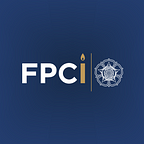Rolling The Dice of War: The U.S. Undying Commitment to Israel and China’s Increasing Prominence as Peacemaker
Written by: Oktavianus Bima Saputra
Hamas’ sudden attack on October 7 has opened yet another gruesome chapter in the Israel-Palestine conflict. While some people treat this tragedy as just another piece of news, one cannot hide behind the fact that this protracted conflict has vulgarly revealed the racialistic nature of how we may perceive humanity – referring to the question, “Who are the ones worth saving?”. Ever since Hamas’ unexpected attack, states have begun to rally behind blocs that represent a conflictual view towards the conflict. In times when the United States goes by the book by stating its unbent and unbroken commitment to Israel’s survival, China has taken a different path to charge for a peaceful resolution. Considering their achievement in brokering long-awaited peace between Saudi Arabia and Iran, we may just happen to live in the age of China’s emerging prominence as the world-renowned peacemaker.
China’s initial response to the conflict can be traced back to October 8, when China’s Ministry of Foreign Affairs spokesperson accentuated the need for all parties to exercise restraint and stop all forms of hostilities in its official statement (Fan, 2023). Since then, Wang Yi, China’s Foreign Minister, has reinforced China’s stance by mentioning buzzwords, such as “condemning” or “opposing”, to show its eagerness to build a constructive dialogue and an objection to the relentless violence in the Middle East. It’s also worth noting that China has restrained itself from labeling Hamas’s attack as an act of terrorism, implying that it also didn’t recognize them as a group of terrorists (Colville, 2023). Robinson (2023) stated that this move exhibits a drastic difference, whereas the United States and the European Union have designated Hamas as a terrorist organization due to its armed resistance towards Israel. The propaganda of who’s the bad guy in history’s silver lining became increasingly important as it played crucial roles in justifying violence.
The specific characteristics of China’s “neutral diplomacy” have proven its efficacy by resolving prolonged grudges between Saudi Arabia and Iran. After seven years of cold-hearted tension, the two Gulf countries resumed their diplomatic relations, symbolized by a trilateral joint statement. In the process, China used its economic and increasing political advantage to glue together a once fragmented region (Jash, 2023). Those kinds of advantages may come with the U.S.’s rapid weakening of influence in certain parts of the world. Not to mention, their decision to keep their ironclad commitment to Israel’s prosperity has further excluded Palestinians from the main conversation of justice and liberty – something that the U.S. ironically boasts from time to time.
China’s potential to mediate a peaceful resolution in one of the world’s deadliest conflicts – between Israel and Palestine – would solidify its status as a prominent global player who’s pushing for inclusivity instead of alienation. In return, that status may also benefit China by increasing trade and strengthening the political relations with the Middle East region that the U.S. once enjoyed over years of political intervention. In constructing peace, China must engage with all parties and look for common ground instead of de-centering one’s aspirations. Should an inclusive approach be accomplished, concerning the complexity of the conflict, we may live to see peace in the Middle East.
References
Colville, A. (2023). The China-Palestine relationship, explained. The China Project. https://thechinaproject.com/2023/10/17/the-china-palestine-relationship-explained/
Fan, H. (2023). China’s Attitude Toward the Israel-Gaza War. Thediplomat.com. https://thediplomat.com/2023/10/chinas-attitude-toward-the-israel-gaza-war/
Jash, A. (2023). Saudi-Iran Deal: a Test Case of China’s Role as an International Mediator. Georgetown Journal of International Affairs. https://gjia.georgetown.edu/2023/06/23/saudi-iran-deal-a-test-case-of-chinas-role-as-an-international-mediator/
Robinson, K. (2021). What Is Hamas? Council on Foreign Relations. https://www.cfr.org/backgrounder/what-hamas
